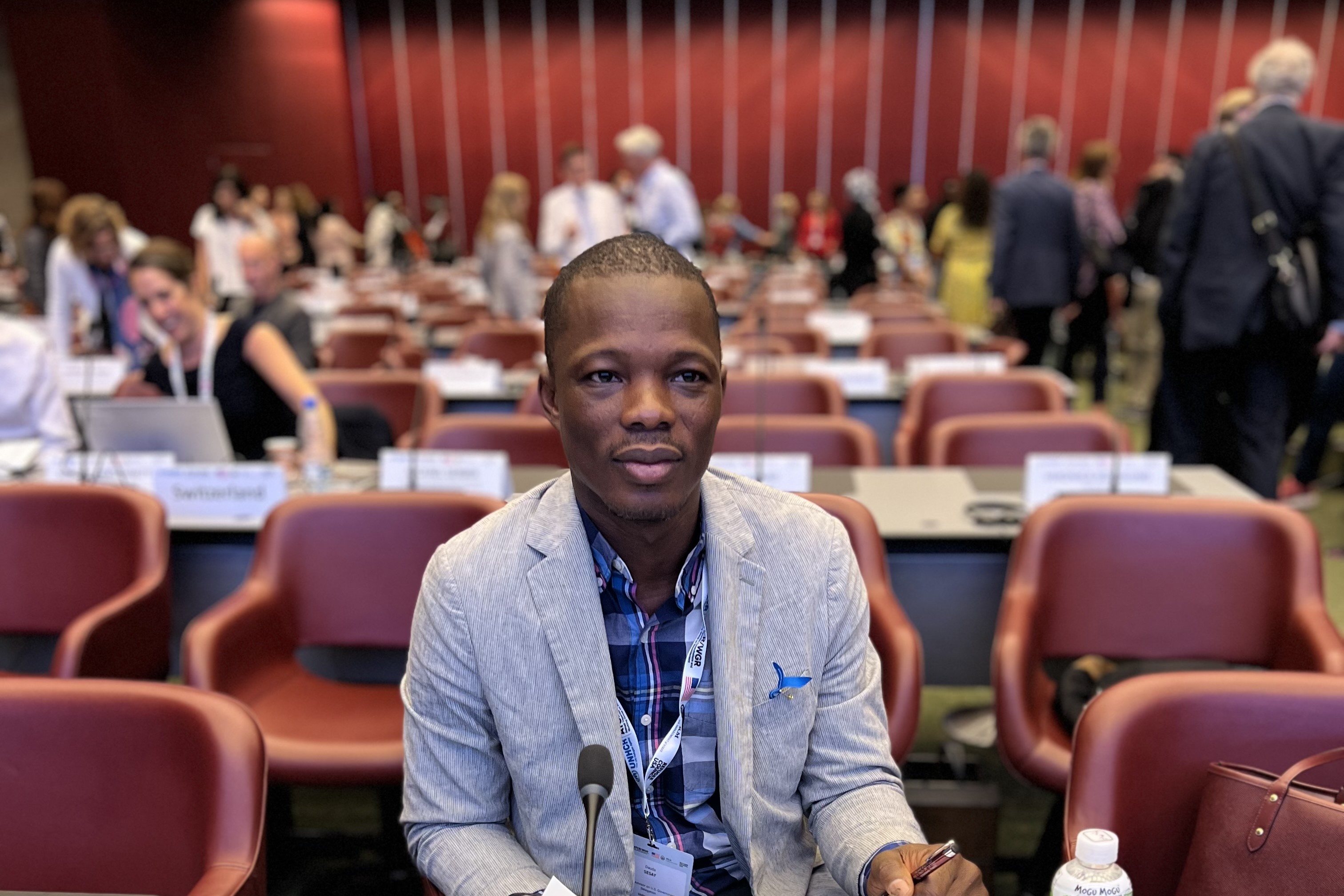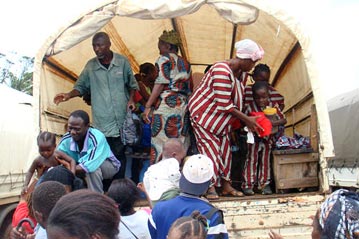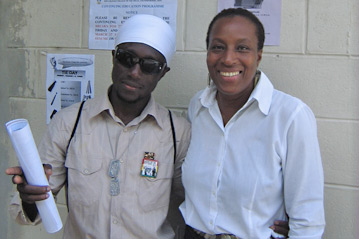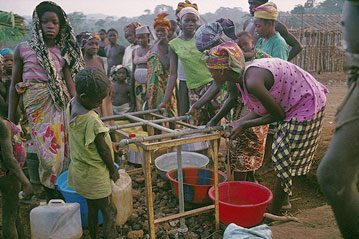Empowering communities one village at a time
Empowering communities one village at a time

KONO, Sierra Leone, June 30 (UNHCR) - A gender revolution is simmering in the diamond-rich district of Kono in eastern Sierra Leone. It has nothing to do with gems, and everything to do with genning up on rights and skills for women in the war-torn area.
Slowly but surely, women - and men - are learning to empower themselves and to prevent sexual and gender based violence through UNHCR projects in this poverty-stricken district.
Before the civil war broke out in 1992, Kono was home to over half a million people. Many fled when fighting devastated the area, but more than 34,000 have returned in recent years, making Kono one of the major areas of return. In total, over 271,000 Sierra Leonean refugees have returned home since the war ended in 2002, more than half of them with UNHCR assistance.
After witnessing the devastation and destruction in areas of return, the UN refugee agency started its community empowerment projects in 2003 to ensure that returning refugees and their surrounding communities have access to basic services.
Of the 1,000 community empowerment projects implemented by UNHCR in Sierra Leone, Kono district accounts for more than 300. The projects are mainly focused on improving access to water, sanitation, health facilities and schools, as well as income-generating activities and the prevention of sexual and gender based violence.
UNHCR, working with its main governmental counterpart NaCSA (National Commission for Social Action) and implementing partners, established project management committees in each of the 14 chiefdoms of Kono district. Each committee is represented by five women and five men from each community, who together with UNHCR, identified programmes they felt their communities needed.
Many hand pumps and community centres have been built, while health clinics and schools have been refurbished, improving the daily lives of thousands of Sierra Leoneans. In addition to these basic services, some communities had more specific ideas.
At the request of the community in Yengema, Nimikoro chiefdom, UNHCR and the International Rescue Committee have joined hands to combat the widespread problem of sexual and gender based violence. In Kono district alone, the two agencies have partnered to establish six specialised centres, with three more planned for later this year. The centres are led by female community volunteers who are trained by gender specialists on how to prevent such violence in their communities and how to respond if it occurs.
The women, men and youth in each community established action groups where they come together to discuss ways to prevent gender based violence and to organize sensitization workshops in their communities. Increasingly, the communities are responding and learning that crimes against women are crimes against the family.
The centres are also used to conduct skills training and adult literacy classes. The teachers are community members themselves, and this community-driven project has proved extremely successful.
"The community empowerment projects were meant to complement the government's effort to decentralize and to meet the grassroots needs of the returnee communities," said Sudang Kaentrakool, who heads the UNHCR field office in Kono district's capital, Koidu. "UNHCR with the strong support of our donors and partners has ensured that the return of thousands of Sierra Leoneans to Kono district is now sustainable."
Another successful community-driven programme in Kono district includes the Centre for War Affected Women in Sewafeh, Nimiyama chiefdom, funded by UNHCR and implemented and monitored by World Vision. The centre provides skills training programmes for war widows, women whose limbs were amputated during the war, and other vulnerable people.
Women can take courses in tailoring, catering, hair dressing, adult literacy, weaving, soap making and gara tie-dyeing. All materials, such as sewing machines, cloth, and dye, are provided by UNHCR. There are currently 136 women enrolled in the six-month courses, with many more on the waiting list.
"Before this programme, we were at sitting home doing nothing, we were wasting our lives away," said Ramatu Koroma, a trainer at the centre. "But now we are engaged in productive work and learning skills, thanks to this great programme by UNHCR."
UNHCR will end its reintegration programmes, including community empowerment projects, at the end of this year. However, through these projects and sectoral reintegration programmes, the refugee agency would have left an indelible mark on these communities.
By Rachel Goldstein-Rodriguez
UNHCR Sierra Leone








